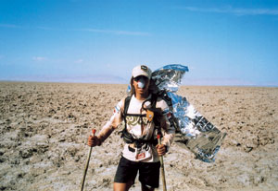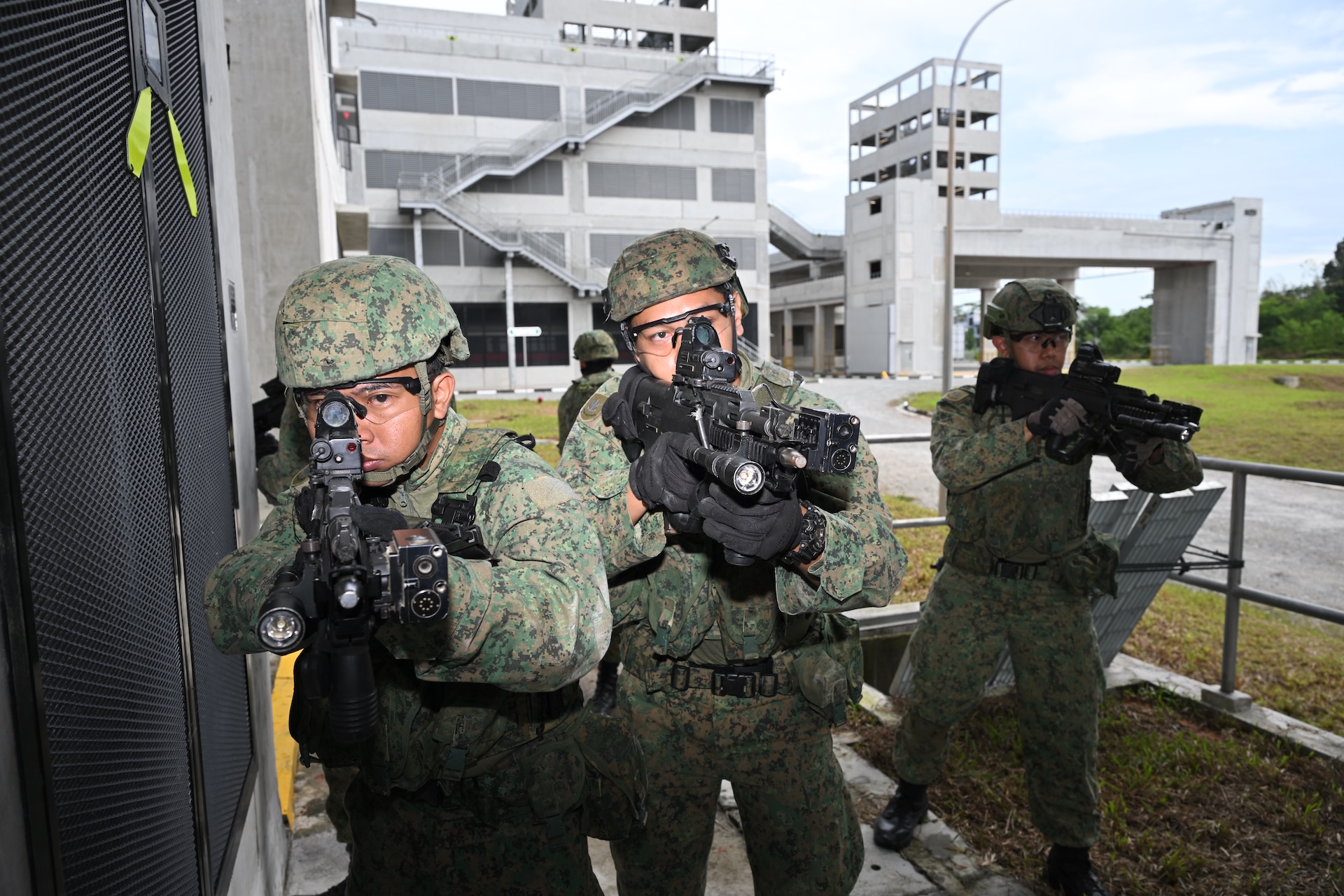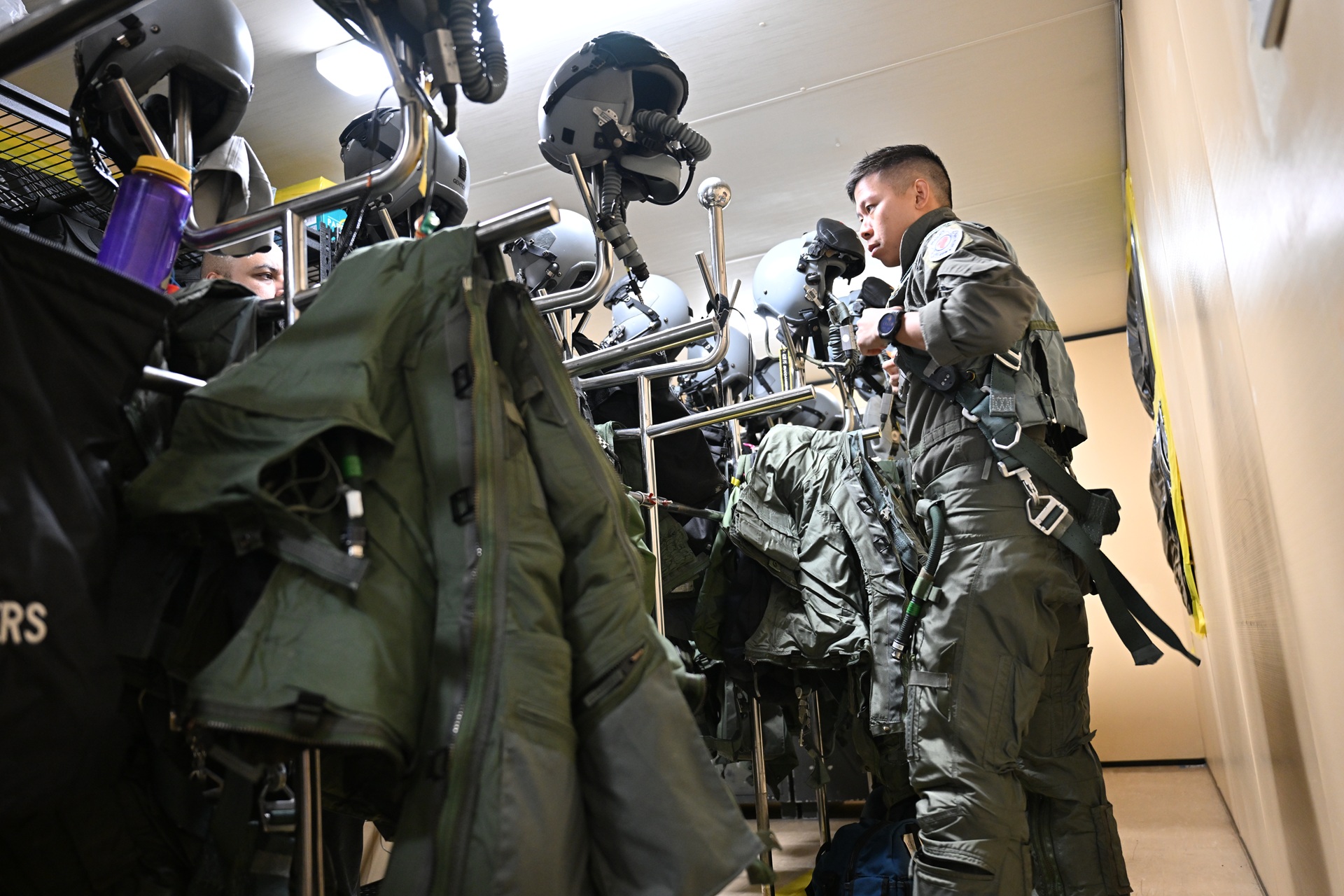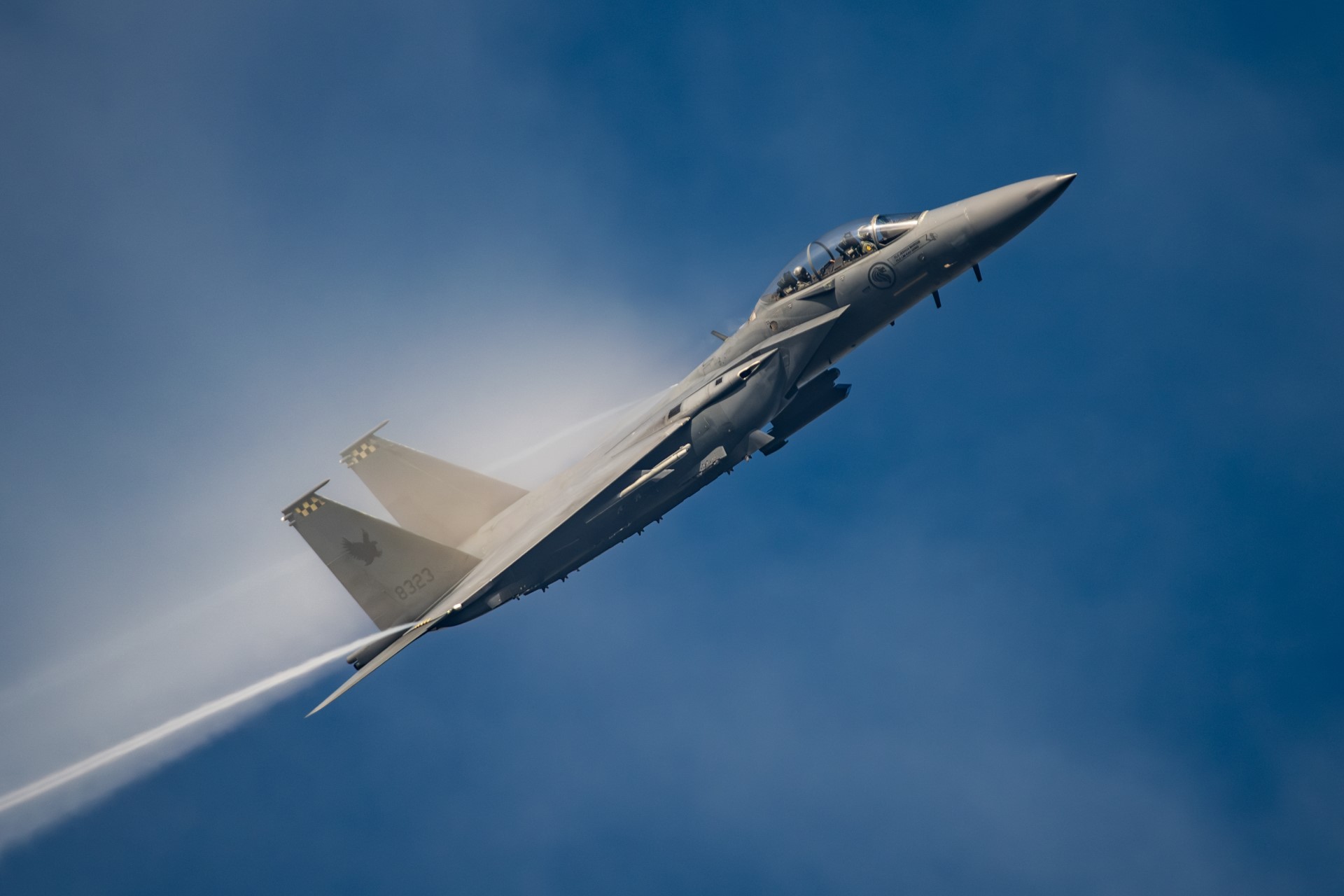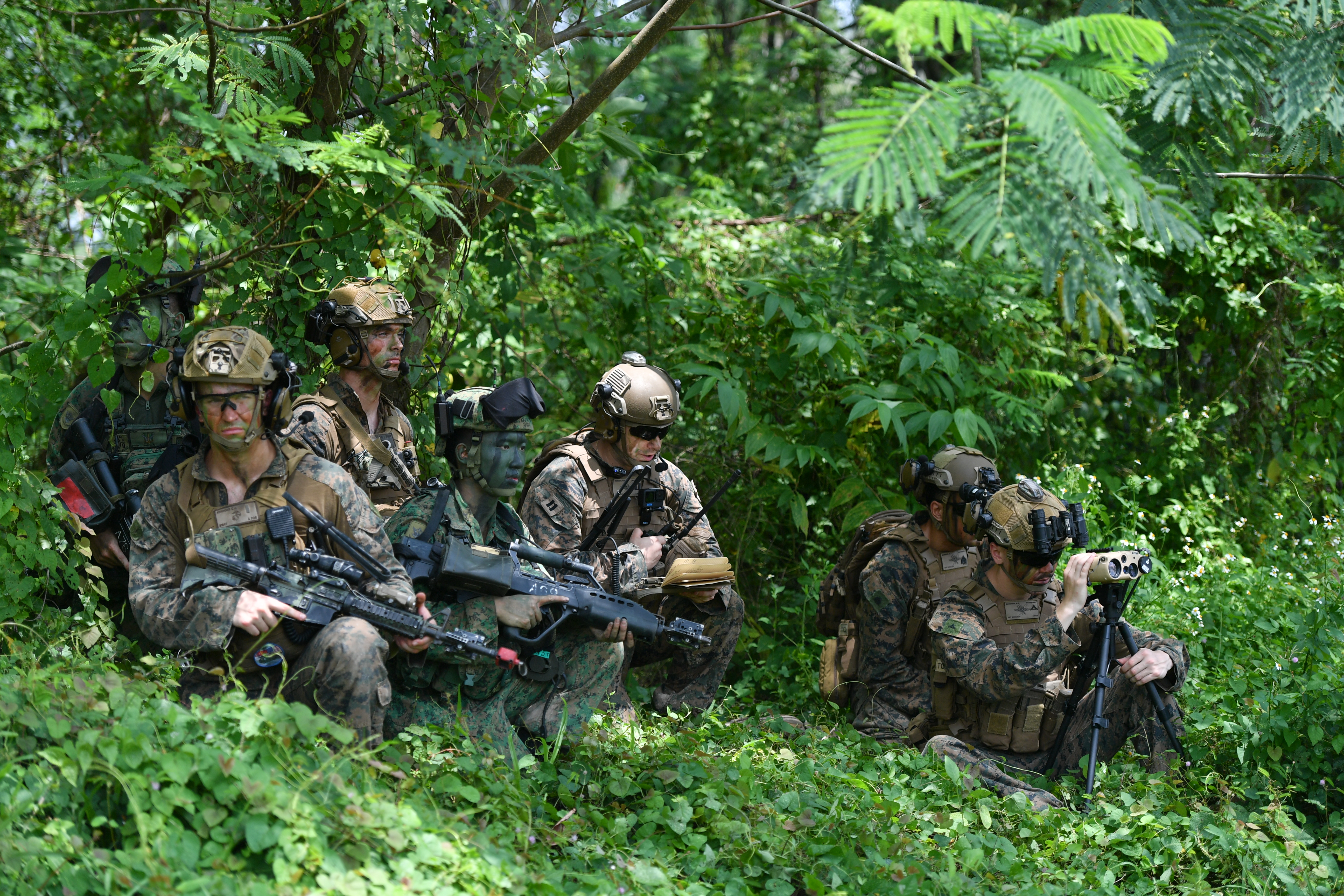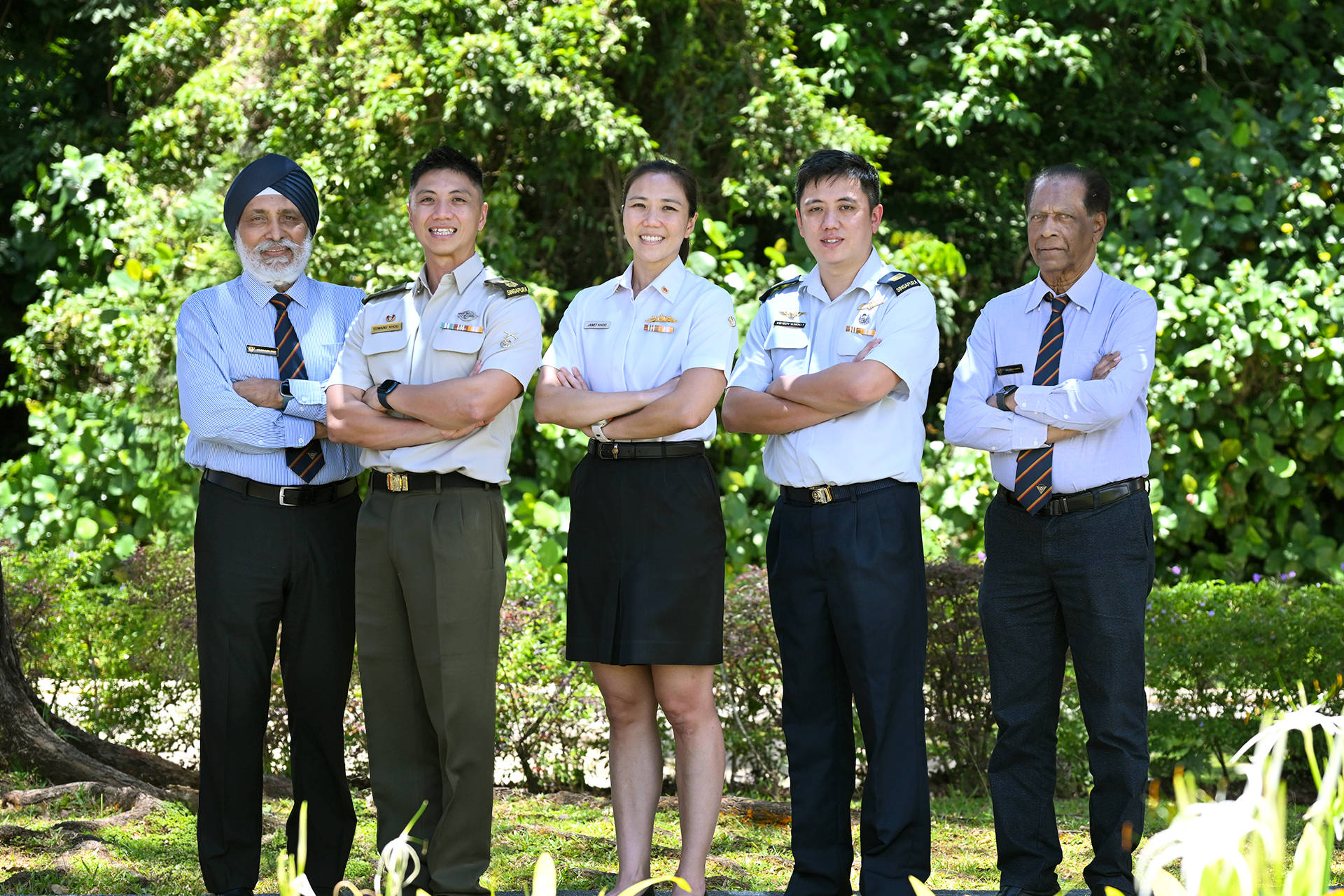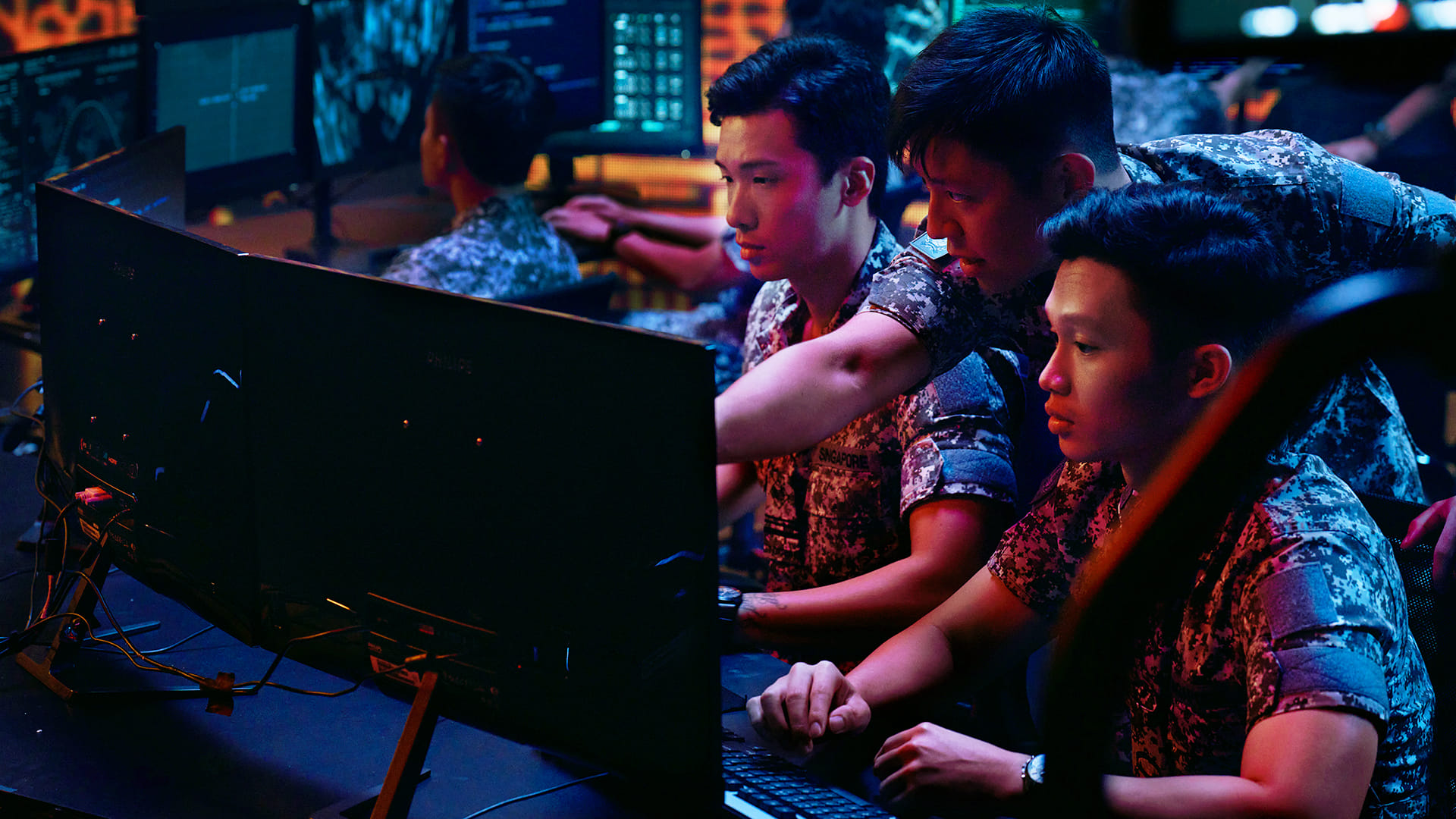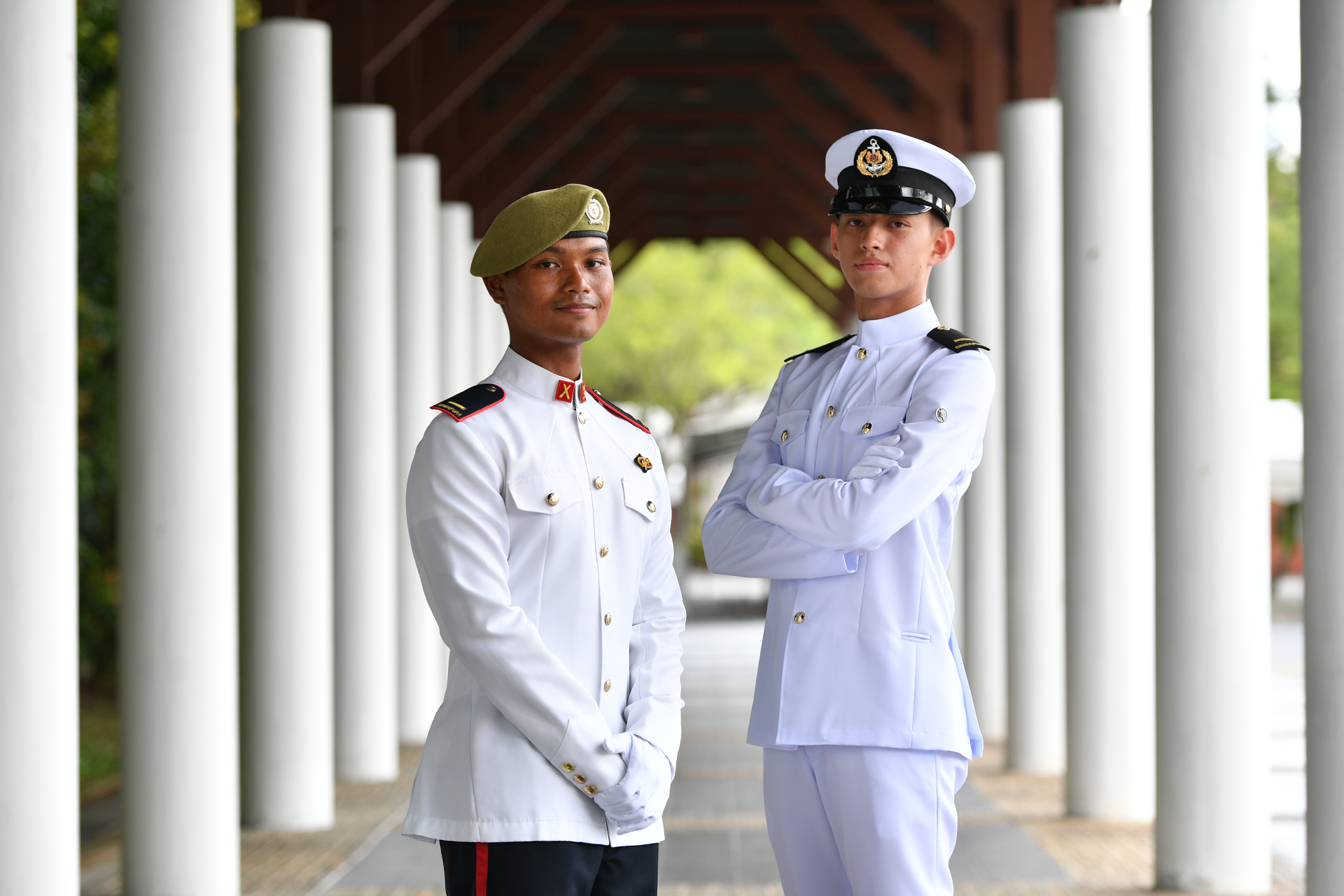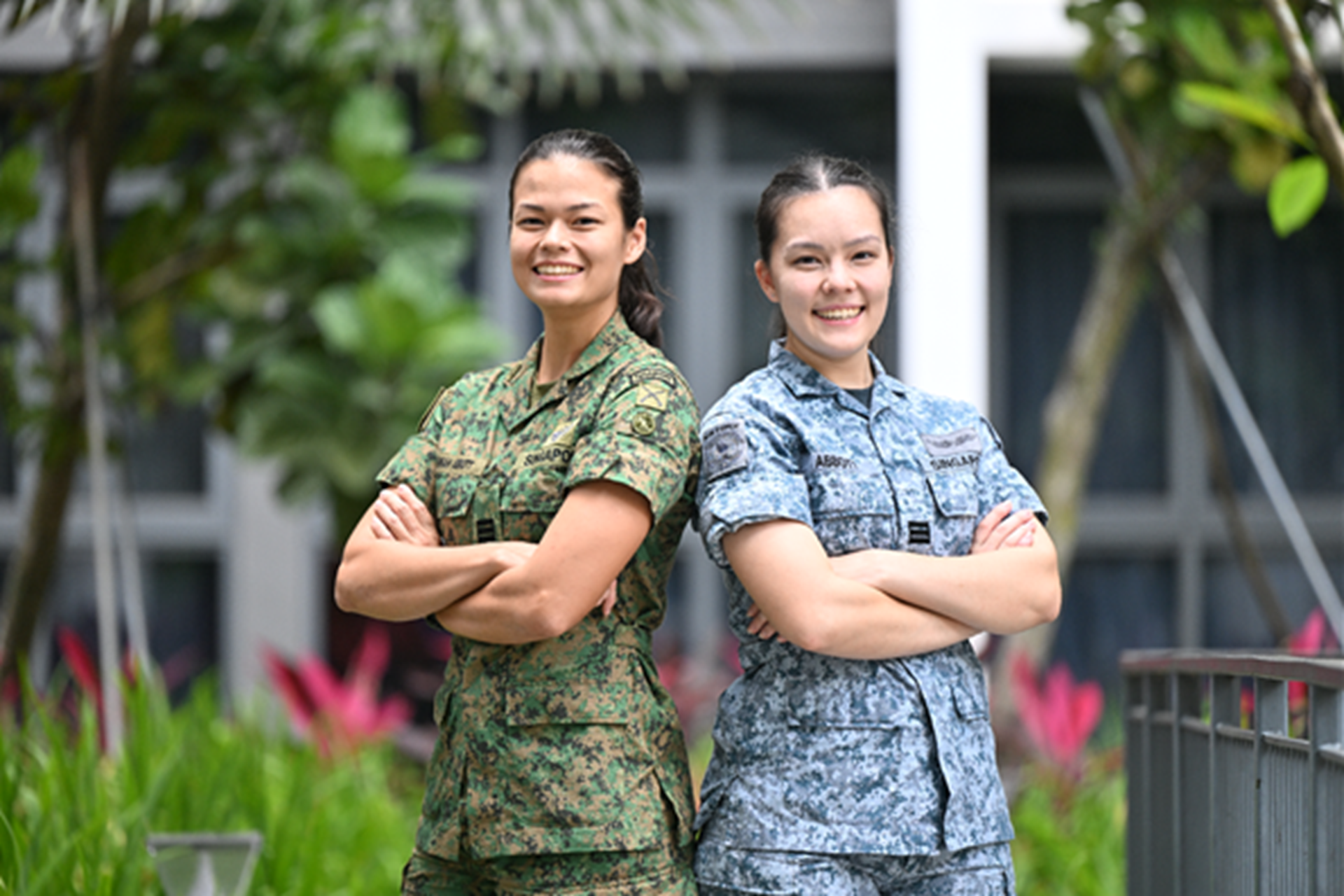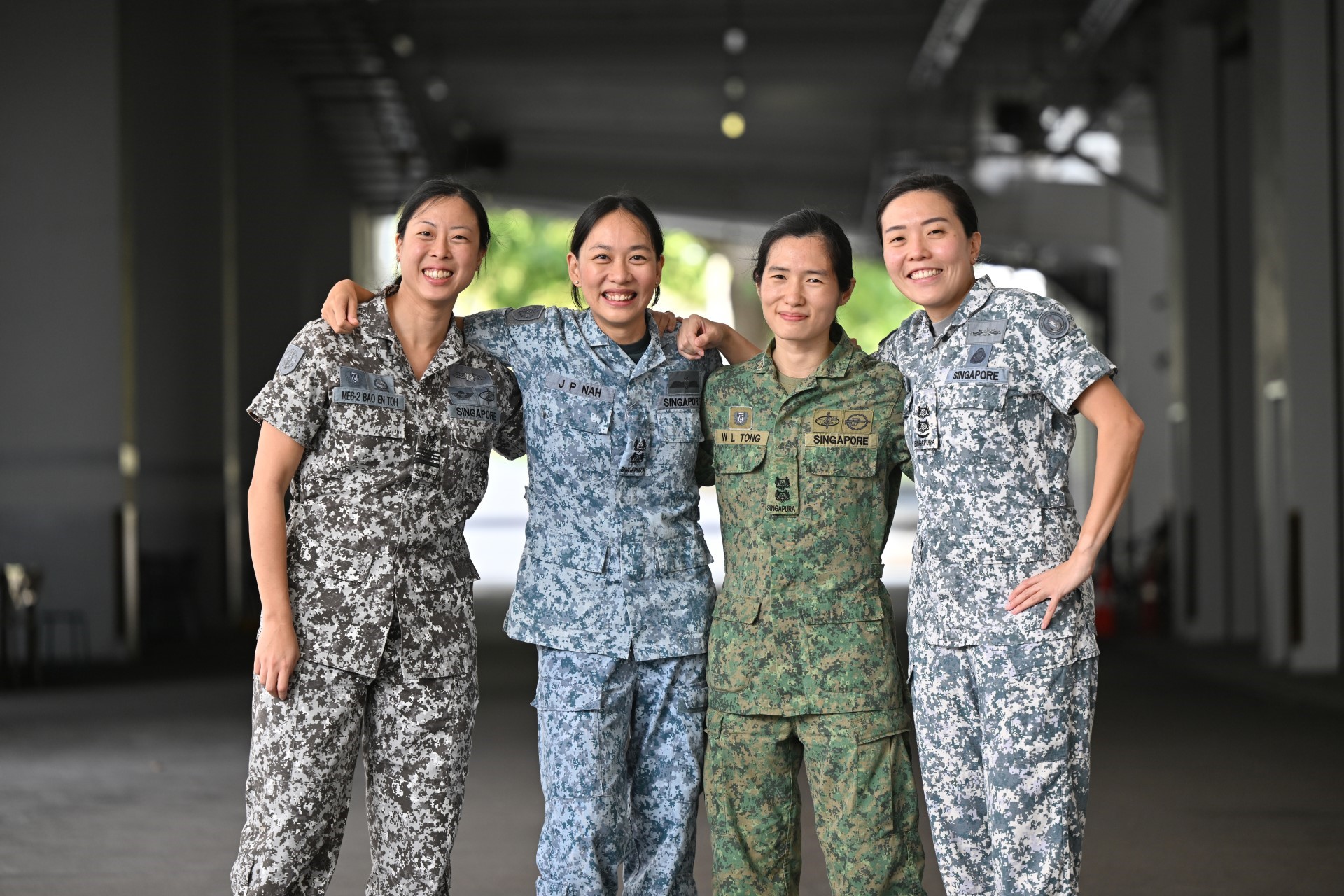THE GOBI MARCH: A COMMANDO'S HOLIDAY PART 2
PHOTO // MAJ Lien Choong Luen
The Gobi March winds its way through the second lowest elevation on Earth, and MAJ Lien Choong Luen, an SAF Commando Officer, decided that it would be his version of The Amazing Race. We bring you the second part of his account of the race, held from 24 to 30 Apr this year.
Day Four The Flaming Mountains
Day Four included a particularly interesting cultural encounter, as it had a climb over the Flaming Mountains of Journey to the West fame. It was here that the Monkey King, Sun Wukong, encountered many devils that plagued him and his master as they headed west to obtain the holy scriptures.
It is my theory now that those demons were figments of their dehydrated and heat-crazed imaginations, as I too began to have visions of creatures waiting to feast on the bones of those crazy enough to wander into this cauldron.
As the temperature rose above 50 degrees Celsius and after having ascended and descended our umpteenth hill, I thought of my previous holiday in Alaska, climbing the highest mountain in North America. There, the temperature at night was -40oc.
The most 'exciting' moment was on the descent, when the howling wind funnelled up the headwall while we were on the ridge with 30+kg packs. It was an instance of sheer poetry as the elements were malevolent and alive, trying to force us off the ridge. Out here, it felt as if their cousins were trying to bake us alive.
The start of Day Four took a pleasant turn along a ridge-line, allowing for comfortable footing only one step off to either side of the trail, after which a steep drop-off followed. Some competitors had to give up and turn around as they were intimidated by the thought of negotiating this 3km stretch of ridge-line; others traversed it on hands and knees.
As for me, I was quite comfortable with ridge-lines, and so I took off at a quick run. Rather overconfidently, I might add, as I took a spill at one of the hair-pin turns. Luckily, I was able to stop myself from falling off the trail by using my bottom as an emergency brake, otherwise it would have been a several hundred metre roll and tumble to the bottom of the hills. That would probably have ruined my day.
Day Five The Long Day
The Long Day arrived and the competitors began what would be their most painful stage. The end of Day Four had seen the mercury hit the 50 mark, and this day would be no different. It began with a 14km stretch to the ancient Tang dynasty city of Gaochang, after which we headed into the vast expanse of the Turpan Basin.
As the day progressed, there were more and more racers who had to stop by the wayside, but I could do nothing to help them. Unlike the military ethic of One for All , out here it was every man for himself, as none of us had any reserves to spare. Yet by the end of the day, I had given away my meagre supply of spare hydration salts, as well as some of my snack food.
One of the check-points in the Long Day was set in the middle of a small village where we had a mandatory one-hour stop and were allowed to order food. Given that this was the western-most part of China, where Asia bumped into Europe, it was a given that all the people had Eurasian features - black hair and blue or green eyes. The road signs also saw an unfamiliar mating of Arabic and Chinese text. And I can think of no better recommendation to study Chinese than to be able to order food and drinks when in the middle of a small town in the middle of Xinjiang.
Throughout the Long Day, I walked by myself and after a few hours, there was nobody in sight. The solitude was pleasant, but one of the concerns was that sleep-walking alone in the dark, I might walk into a ditch and sprain my ankle. My constant mantra was the Ranger's creed, snatches that drifted to me in my sleepy stupor. "Surrender is not a Ranger word. I will keep myself physically strong, mentally alert and morally straight."
The final stages saw me walking across the tall sand dunes by the moonlight. This was a surreal landscape, as the moon peaked through over the top of the dunes, accompanied by the sound of heavy silence. There was a sense of awe at the forces that had wrought such an alien environment into being. Wonder is all around us, if we only take the time to look.
By now, my mind was starting to wander, as I started to analyse the self-organising critical angles of the sand dunes to see where the footing would be best. To crest the dunes, you had to sprint up the last part, otherwise you would just slide backwards in a futile effort. This exertion got pretty annoying after a while, particularly when the tendonitis that I had been dreading decided to re-visit me.
Crossing the sand dunes, the moment of truth was always when we crested the top, only to be met with the sight of another series of dunes that we had to go up and over. Again. And again. And again. I tell you, after a while, I was mentally cursing and swearing at Ian Adamson, the race director who had set the course.
Thankfully, I managed to complete the Long Day in just over 24 hours, coming in just after sunrise, to avoid another heat cycle. Some other competitors were not so lucky. There were those who had to suffer a second day of heat, others who were evacuated owing to a massive sandstorm, and some who were medi-evacuated because they had passed out in the middle of the route and started convulsing. Not a pretty sight. And given the distance between the first and last competitor, the safety coverage was spread rather thin.
Honey, I'm home!
The highlight of each day was the approach to the campsite, where a Uighur woman would beat on the drum to welcome the competitors. Before long, we could see the national flags and the white tents of the campsite beckoning us as our spirits lifted.
Of course, this could lead to delusions, as many competitors started hearing the elusive drumbeats when there was none. In other settings, this sort of psychosis would call for a thorough psychiatric investigation. Here, it was all too normal.
There is a poem by Percy Shelley titled Ozymandias. It tells the story of a grand and proud statue of a forgotten king that lies silent and shattered in the middle of a lonely desert. This poem came to my mind as I saw the small hands and signs of human engineering far from significant habitation.
Who would come here I wondered? Such insignificant human effort set against the backdrop of vast wilderness brought out the contrast of isolation all the more starkly.
Life was reduced to a simple set of parameters and desires. Drink, eat, look for marker flags and listen to the sound of the drum. In that constancy, away from the immediacy of everyday concerns, it was possible for a short spell at least, to challenge oneself, and focus on simple things, such as food and self-preservation.
Am I going to make it, doc?
As the days went by, the medical tent saw more and more patients. Foot injuries were particularly heinous, as if the racers had been subjected to medieval torture. Blood blisters under the toe nails that had to be popped with a heated safety pin pushed through the nail, massive blisters that ran the length of their feet, in between the toes, and on every other location conceivable.
Sometimes the skin was simply scrubbed raw, leading to profuse bleeding. Abrasions from the shoulder straps and the backpack on the lower back were also common.
Hearing my friends recite their litany of pain daily left me feeling a little guilty that my feet were holding up just fine. A large part of this was due to how I took care of my feet. I took the effort to adjust my socks and apply lubricant at the first sign of hot spots. While this was disruptive to my race effort, in the long run it spared me much grief.
Necessity and invention
It is an old cliche that necessity is the mother of invention. The corollary to that adage is that only when the situation is bleak will you unlock your powers of creativity. As a young officer, I recall being disheartened when my platoon sergeant told stories of his Ranger course experience as I perceived an unbridgeable gulf in cunning and survival skills between him and me.
However, when I was there, I surprised myself with my own ingenuity during crises when things had gone wrong and I had to fix them or fail. You never know what you can do till you are forced to do it. During this race, the biggest crisis resulted from my decision to leave my trekking poles behind as they were considered 'optional equipment'.
I kicked myself mentally for the whole first day, as every missed step and turned rock became a potential ankle-breaker. The footing on the rocks was simply too treacherous, what with slippery terrain, over-sized shoes and carrying a pack to boot.
When I finally reached the campsite, I was desperate and looked all over for possible substitutes. I was inspired by the sight of the flags and improvised a solution by fashioning trekking poles out of the bamboo flag poles. With the help of the Chinese race assistants, I had a pair of cheap, strong and lightweight poles to support my weight for the rest of the journey. Another excellent 'Made in China' product.
The other major problem was sand in my shoes. If your kid complained about sand in his shoes during an excursion at the beach, you would probably scold him for being a cry-baby. But travelling 250km with sand packed in between your toes, however, is a different story.
I tried all ways and means to sand-proof my shoes with duct tape and safety pins, but no amount of ingenious tinkering solved that problem. There were many other examples of improvisation, such as cutting up water bottles to use as spoons, and scavenging for food that people discarded in their effort to minimise their load (something so very reminiscent of the Ranger course).
For me, the small annoyances, while troubling, were an enjoyment in the race as I was forced to exercise my powers of self-reliance and resourcefulness in a climate of deprivation and scarce resources. All too often, I felt that I had become too comfortable in my own skin and climate-controlled zone. It is all too true that transformation only occurs when it is forced upon us.
The othersThere were some real characters in the race. The top three places went to ex-military personnel. The race winner was Evgeniy, a very thin Russian who had spent his conscript service in the Xinjiang region guarding the Russian border against a possible Chinese attack, hence he was familiar with the area. There was a large contingent of Britons from Hongkong. They were highly commendable for the funds they raised for Operation Smile, a charity that fixed children s cleft palates, a disfiguring congenital condition. However, the most inspiring person was a blind Korean man and his guide. He was extremely fit, and ran along as if he had no disability. I wondered how he managed to negotiate the river beds and rock-fields without killing his legs, when I had difficulty enough with poles and sight. I was also moved by the weight of responsibility that the guide had to shoulder, particularly on the ridge-line, when any misstep could have proved fatal.Comfort soldierAs soldiers have a tendency to do, going out-field entails careful selection and packing of comfort items. During the race, this was very much in evidence, and an interesting question to pose was: If you had a strict weight budget, what would be the one piece of comfort item that you would bring with you?Patrick, a Texan, carried a thin flat panel solar cell to recharge his Ipod. The Singaporean pilots had 'bak kwa' (barbecued pork) and their inflatable air pillows. Douglas, an Englishman, had Bovril in a glass jar to season his bland food. The Koreans were chain-smoking their way through the whole seven days. For me, it was a double ration of wet-wipes. I allocated myself two sheets per day to keep clean.
The end of the road
After resting most of Day Six, the final day was rather uneventful, and the finish line was at the sand dune national park in the small town of Shanshanxian. All I can say is I was happy to have completed the race, about halfway through the pack.
The awards ceremony, held over a buffet lunch in the hotel, was both moving and fun. The star was a little boy of eight who had been treated at the Operation Smile clinic in Xi'an, for which some of the competitors had raised funds. He was born with very severe facial deformities, having virtually no palate and little by way of an upper lip on one side. His family left him to die on the street.
A Chinese man from another family walked past him for several days while he was lying on the street and decided that he had to help him. The Chinese man took the little boy into his own home, much against the wishes of his family. The Chinese man heard about the Operation Smile clinic in Xian and the two of them walked 200 miles (320km) to Xi'an for the little boy to be treated. The little boy now looks almost normal. He helped to present the prizes.
While we were suffering on our perverse holiday, there were many people for whom pain and hunger was a matter of default, not of choice.
Sometimes, it takes a long journey to gain a little perspective.
The Gobi March: A Commando's holiday Part 1
